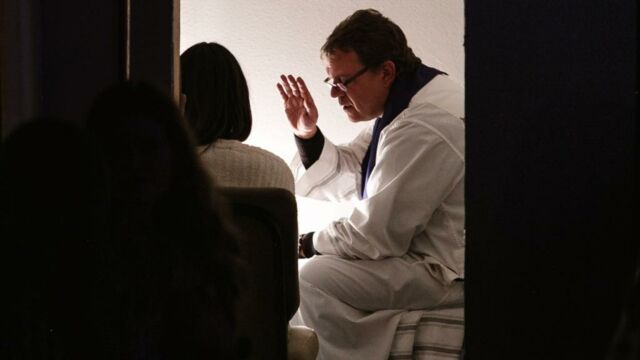French Church abuse: Are priests allowed to report sexual crimes to the police?

Are priests allowed to report crimes, that were disclosed during confession, to the police? Let's find out.
A recent investigation revealed that more than 216,000 underage children, a majority of which were young boys, were sexually molested by members of the French Catholic Church since 1950.
Discover our latest podcast
Code of confidentiality
This gruesome revelation has cast a shadow on the institution’s sanctity, with many questioning how they managed to cover up so many crimes. Another question that arises is whether these crimes were divulged during confession and kept a secret by priests because of their religious code of confidentiality.
More under this adMore under this adRecently, the President of the French Bishops’ Conference was summoned by the Minister of the Interior, Gérald Darmanin, after he made controversial remarks about the confessional.
Controversial words
After the terrible reports of sexual molestation on minors were made public, Bishop Eric de Moulins-Beaufort said that the confidentiality of confession is 'above the laws of the Republic' of France. This implies that priests who receive confessions from parishioners should not be able to report them, no matter the nature of the sin.
More under this adMore under this adWhile this was the case during and prior to the 19th century, the law was amended in 1905. Under the new law, all members of society including members of the French church have to inform authorities of sexual assault and abusive crimes. Article 434-3 of the French Penal Code states that:
The fact that anyone who has knowledge of deprivation, ill-treatment or sexual assault or abuse inflicted on a minor or on a person who is unable to protect himself or herself because of age, illness, infirmity, physical or mental deficiency or pregnancy, fails to inform the judicial or administrative authorities or continues to fail to inform these authorities until such time as these offences have ceased, is punishable by three years' imprisonment and a fine of 45,000 euros.More under this adMore under this ad
Church of England
In the Church of England, a guidance issued in 2019 dictates that those who confess a crime of this nature will not be given fogiveness unless they turn themselves into the police. It states in Guidelines for the Professional Conduct of the Clergy:
Where a penitent discloses in the course of such a confession that he/she has committed a serious crime, the priest should require him/her to report it to the police or other statutory authority and should withhold absolution if the penitent refuses to do so.More under this ad